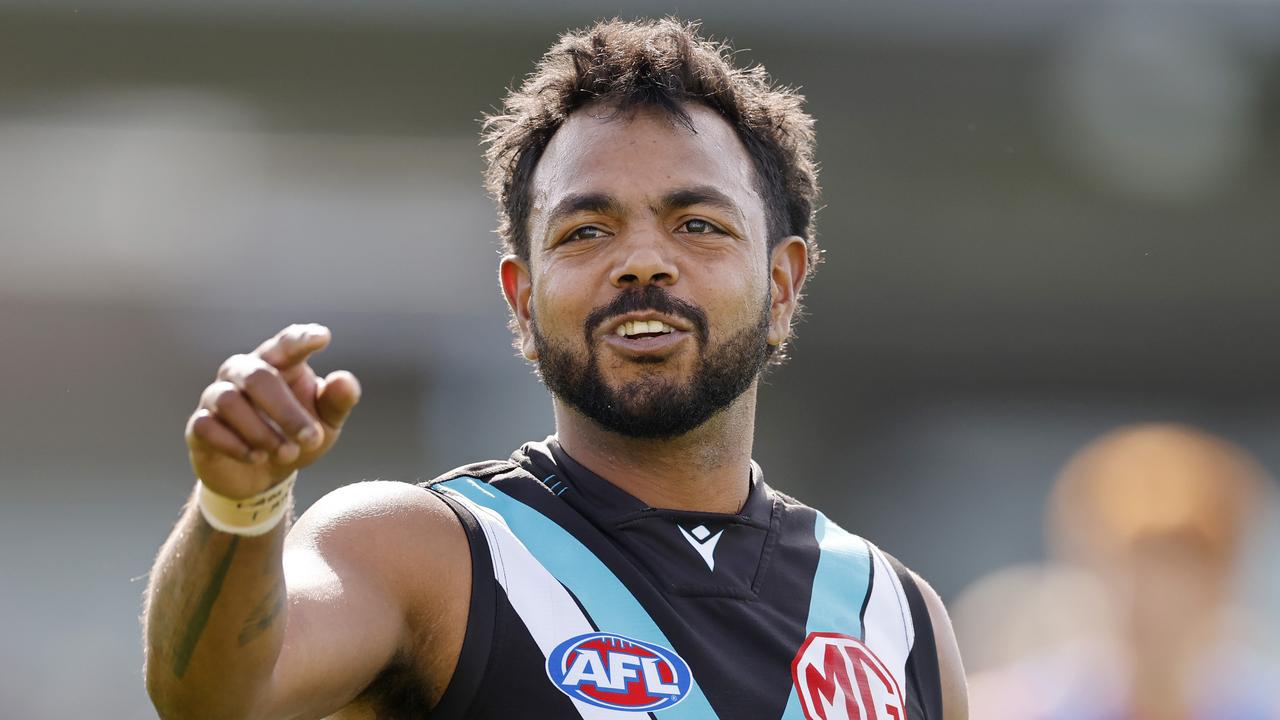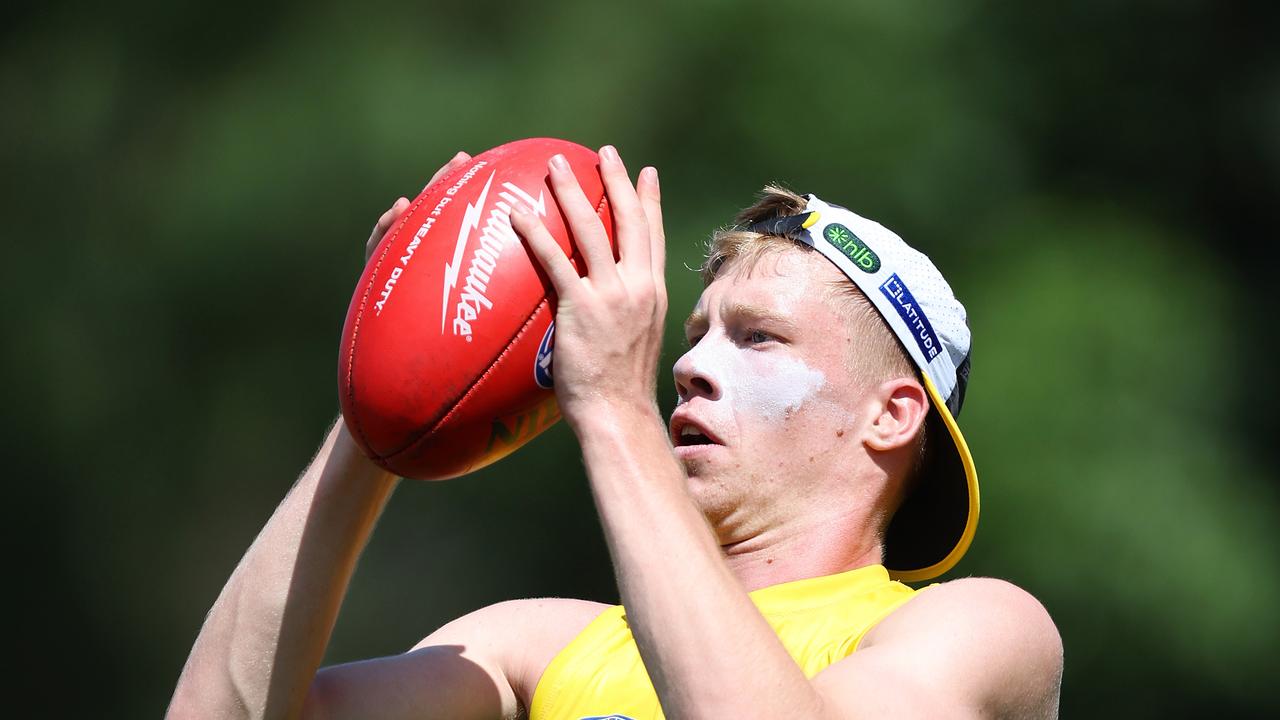Most people quit and move on – this is why Gillon McLachlan is staying, writes Mark Robinson
Gillon McLachlan’s farewell tour will last until October, and we don’t entirely understand it, but the complexity of what lies ahead for the AFL means it’s the right call, writes Mark Robinson.
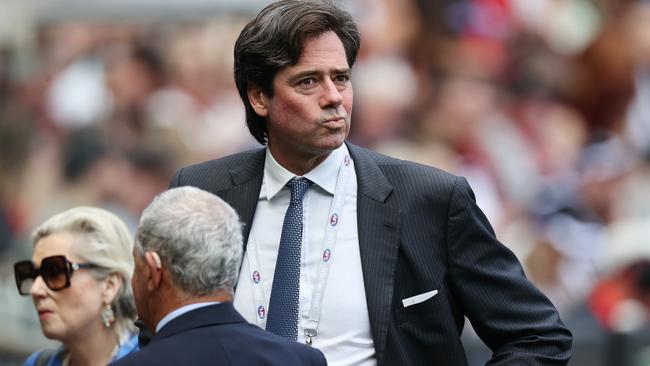
AFL
Don't miss out on the headlines from AFL. Followed categories will be added to My News.
You have to agree the AFL does it differently.
Gillon McLachlan’s John Farnham-style farewell has been extended to October, which means 19 months will have passed from when he resigned.
In other words, he’s still the voice and we’re trying to understand it.
Commission chairman Richard Goyder on Monday said running the AFL was complex, and that many people didn’t grasp that, and that’s why McLachlan was staying for the remainder of the season.
Goyder’s right. We don’t entirely grasp it. Most people quit and move on straight away to give the new bloke clean air and ultimate authority. Maybe not always in the corporate world, but in the world generally.
But there’s no doubt it is complex.
The AFL is a mini-government with a social conscience. It’s a sport played by millions of kids and adults and in the big league, sometimes issues arrive by the hour.
Unquestionably, the AFL believes the job is too cumbersome for Dillon right now.
He is a very capable, intelligent and honourable man, so for him to extend an invitation to McLachlan to stay tells us he needs some help.
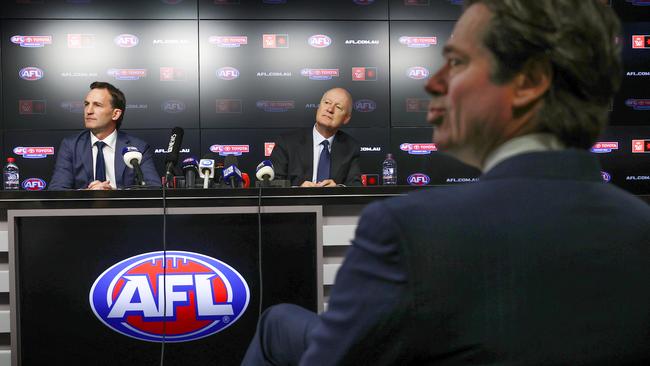
McLachlan won’t be riding shotgun on Dillon for all that time, though. It’s understood McLachlan has planned a European vacation in June and it’s very possible, if the ducks are mostly in a row, McLachlan will depart before October.
So, why is he staying?
Those ducks include the CBA negotiations, the Hawthorn racism investigation and the ongoing concussion discussions and actions.
Also, there’s a strong possibility AFL executive Travis Auld will be leaving, which on top of the search for a new head of football, means Dillon will need to be recruiter and the head of restructure, while trying to run the competition.
Bluntly, if McLachlan and Auld departed within weeks of each other, Dillon would be utterly swamped.
It’s why Goyder will remain in his role, although the fact he conceded a “succession plan’’ would be in place soon enough, suggests he doesn’t have a long-term hold on his position, either.
In Dillon, footy has a sound football person.
Almost 300 games for Old Xavs is quite a playing career, and the fact he coached the Kew Comets junior girls football team for five years and played two reserves games with Mansfield in the Goulburn Valley Football League in 2011, tell us his love for football extends beyond grandeur of the AFL and the networking of the VAFA.
He said on Monday: “Our AFL and community clubs are the lifeblood of our game, and I will be club and community focused and committed to ensuring the game will be at the core of the AFL’s decision making.’’
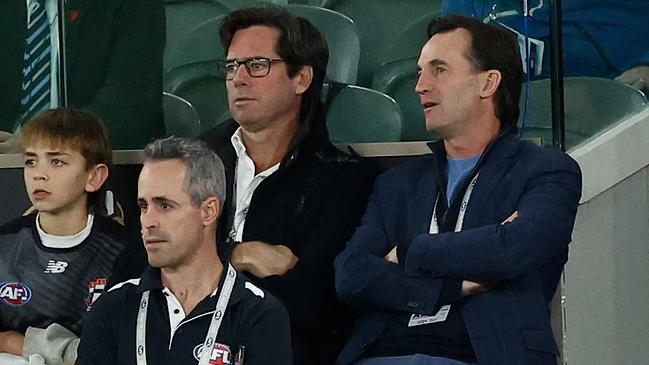
Almost every community club – suburban and rural – would ask what he means by being “club and community focused’’?
McLachlan before him, and Andrew Demetriou before McLachlan, stressed the importance of community football, but the same question directed at those two will now be directed to Dillon: What will you do to help us?
Because the AFL, despite its self congratulations, is not looked at favourably by most country clubs, for example.
In fact, those clubs don’t care who the CEO is, they care about raising money and investing in their kids’ footy and their women’s teams, and generally keeping their clubs afloat – and what the AFL can do to support them.
It goes without saying that Dillon has inherited one of the biggest, most scrutinised positions in sport, and suffice to say, it’s in good hands.
Just how good will be determined in the years ahead.




